Making the decision to resign from your job can be incredibly challenging, especially when it's prompted by a family illness. It's important to communicate your situation clearly and respectfully, while expressing gratitude for the time you've spent with the company. In this article, we'll share a helpful letter template that can guide you through this difficult time, ensuring you convey your emotions professionally. So, if you're facing a tough choice and need some guidance, read on for valuable insights and tips.
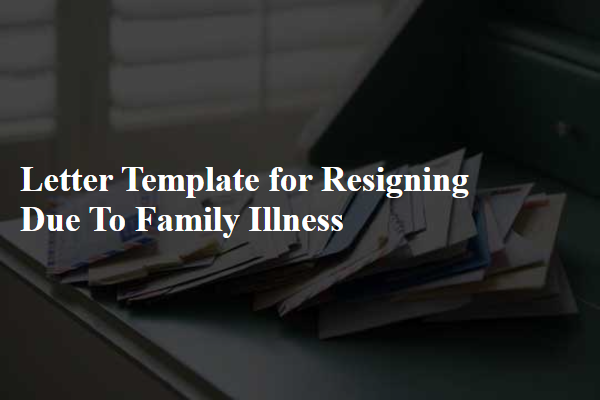
Clear Subject Line
Subject: Resignation Due to Family Illness Resignation often arises from unforeseen circumstances, particularly family illness. Employees may feel compelled to prioritize caregiving responsibilities over professional commitments. Personal situations, such as a family member's chronic condition or emergency health crisis, can necessitate immediate attention and dedicated support. The emotional and physical demands of caregiving can strain one's ability to fulfill workplace obligations effectively. Acknowledging this context, employees might submit their resignation letter formally to ensure a respectful transition for both themselves and their employer. Such letters typically express gratitude for past opportunities while clearly stating the need to focus on family matters during this challenging time.
Polite Opening
Due to a recent family illness that requires my immediate attention and support, I have made the difficult decision to resign from my position. My time at [Company Name], working with such a talented team, has been invaluable and enriching. I hold deep appreciation for the opportunities and experiences received during my tenure here.
Statement of Resignation
Resigning from a position often involves personal circumstances. Family illness can create challenging situations requiring immediate attention. Proper communication is vital. Clearly stating the reason assists employers in understanding the decision. Include details regarding the last working day to ensure a smooth transition. Express gratitude for experiences gained in the role. Maintain professionalism, as future references may depend on this communication. Ultimately, the health and well-being of family members take precedence, leading individuals to prioritize personal obligations over professional responsibilities.
Reason for Leaving
Family illness can create significant emotional and financial stress, leading individuals to prioritize personal matters over professional responsibilities. The need to provide care for a loved one can become paramount, often necessitating a complete commitment of time and resources. Many employees, facing diseases like cancer or Alzheimer's, find the need to step away from their positions temporarily or permanently to focus on home, ensuring that their family member receives the necessary support and medical attention. This challenging decision, albeit difficult, reflects the profound importance of familial bonds and responsibilities, often outweighing career ambitions and job-related commitments.
Assistance and Transition Plan
The impact of family illnesses, such as cancer or chronic disease, can lead to difficult decisions regarding employment. Employees may face circumstances demanding their attention, particularly in cases requiring extensive caregiving. In such instances, a well-structured transition plan is crucial for the continuity of work. This plan might include detailed documentation of ongoing projects, knowledge transfer sessions with colleagues, and timelines for the transition of responsibilities. Communication with supervisors, outlining the need for assistance and support, ensures a respectful departure. Organizations can benefit from providing resources and flexibility to aid employees during this challenging time, ultimately fostering a supportive work environment.
Letter Template For Resigning Due To Family Illness Samples
Letter template of voluntary resignation to care for a sick family member.
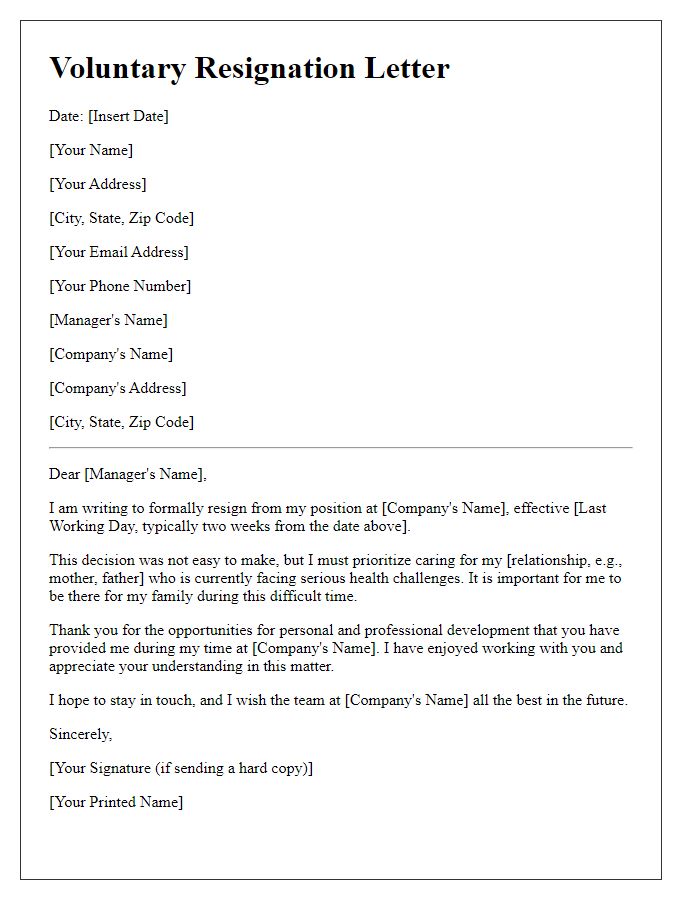
Letter template of resignation related to urgent family care responsibilities.
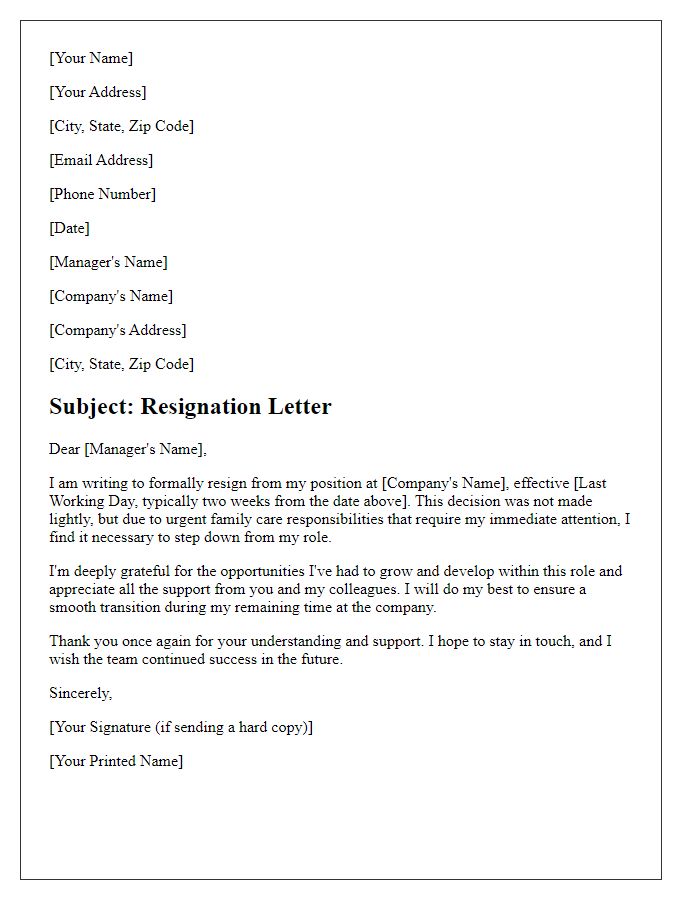
Letter template of formal resignation because of a family health crisis.
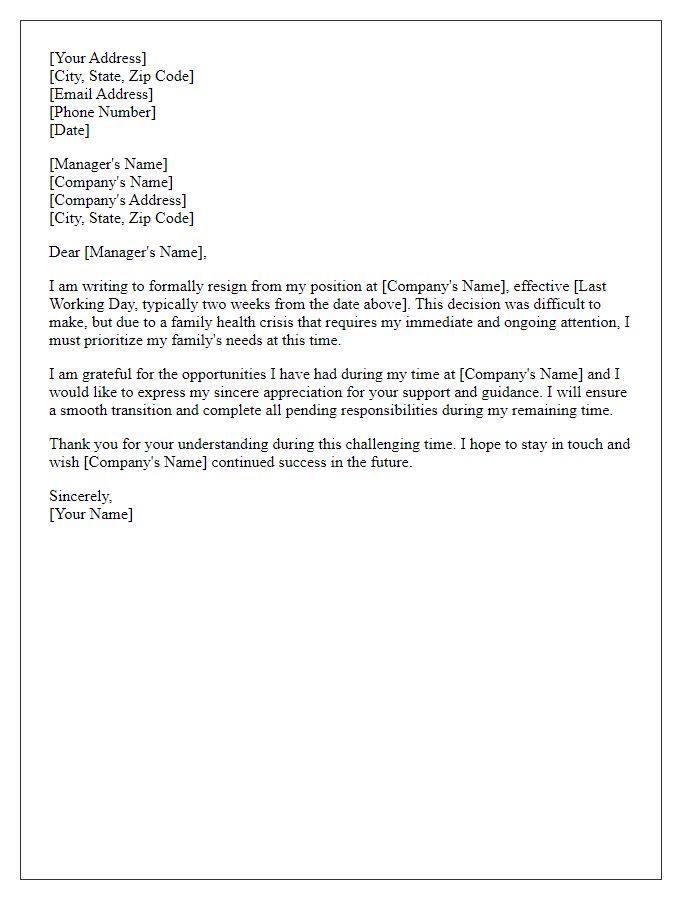

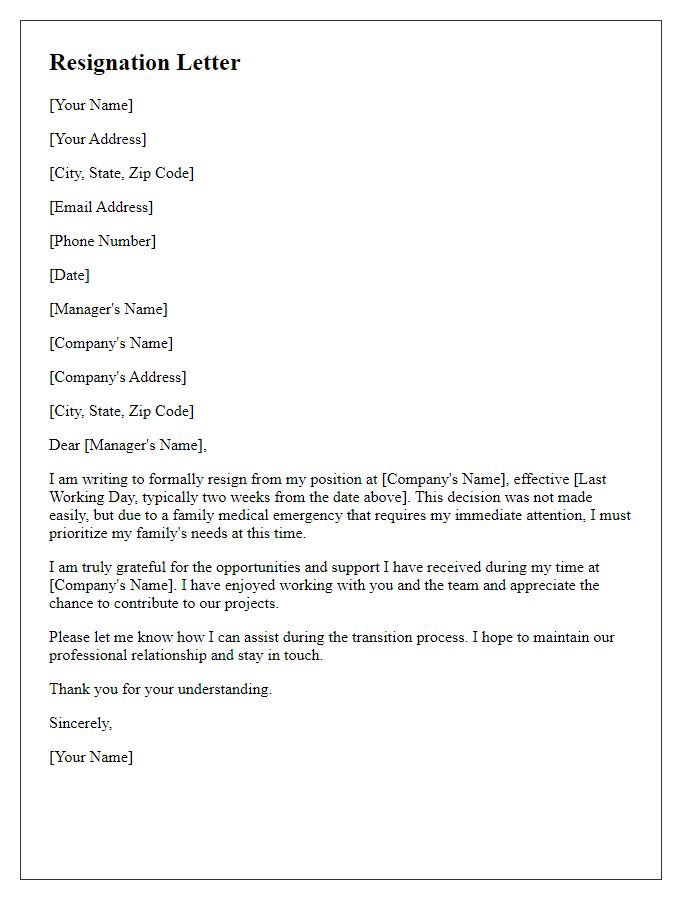
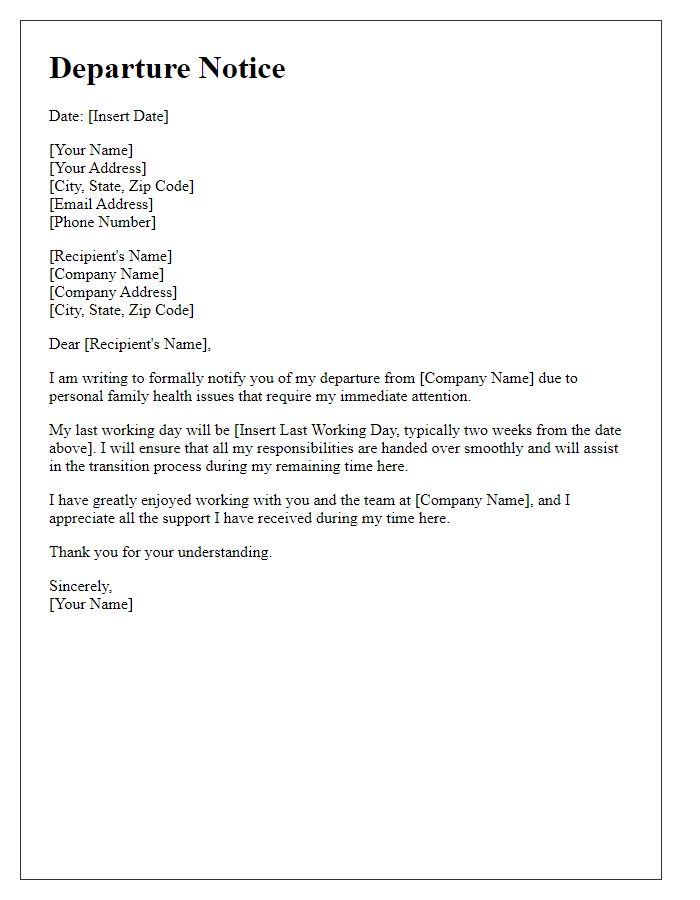
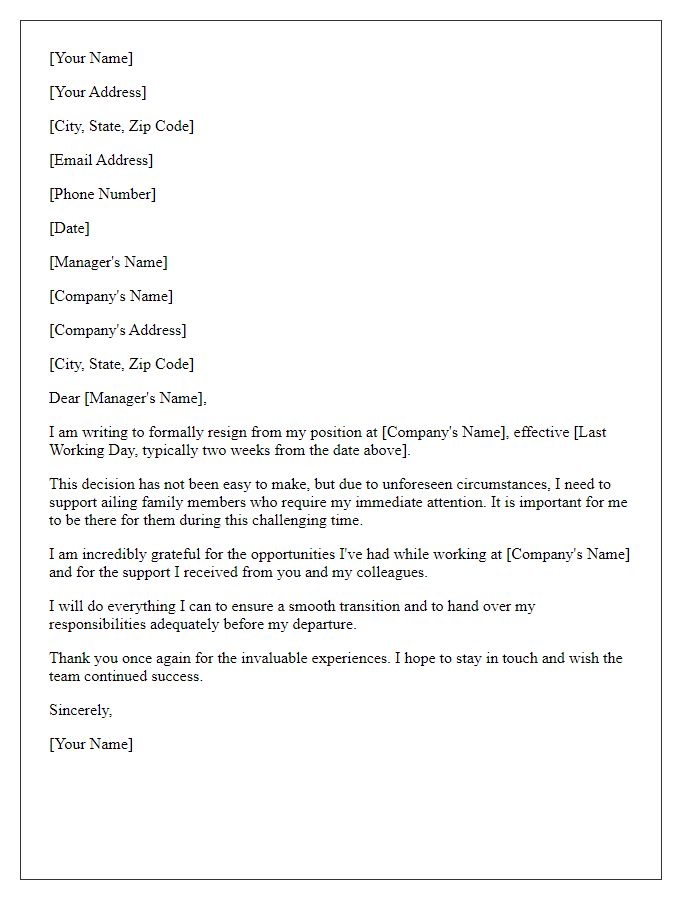
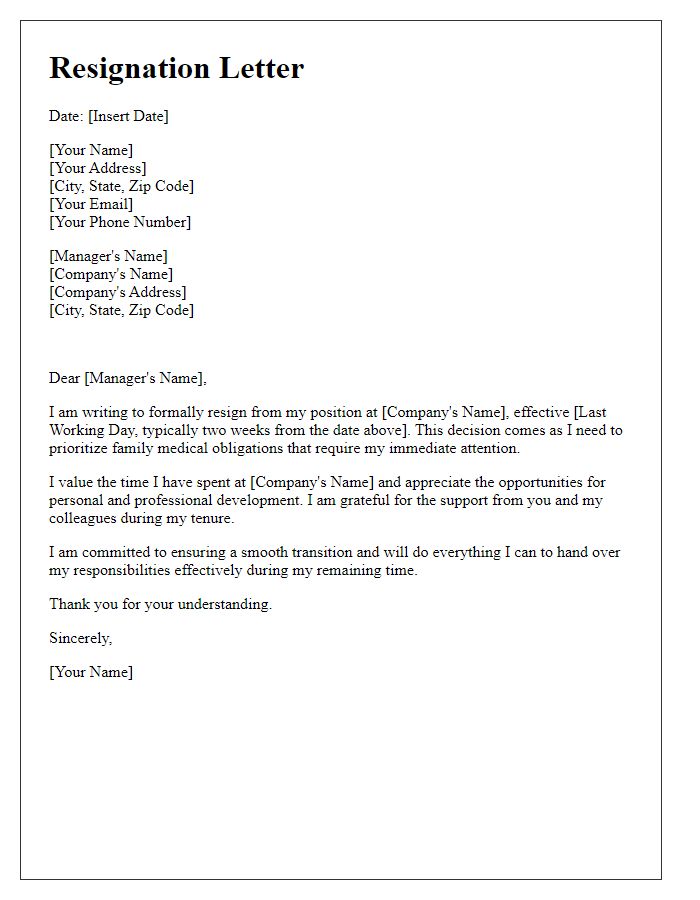
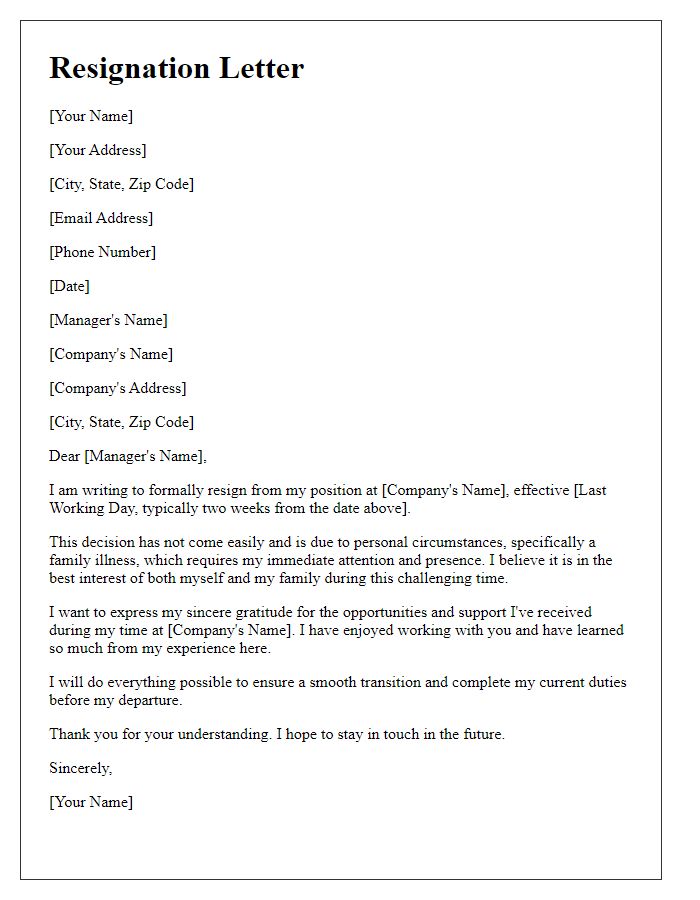
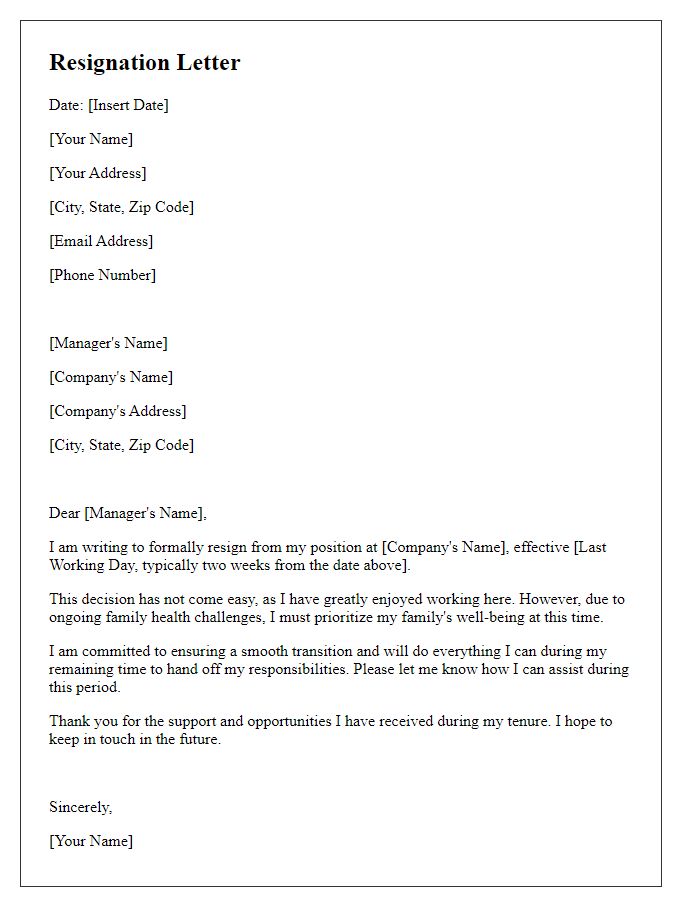
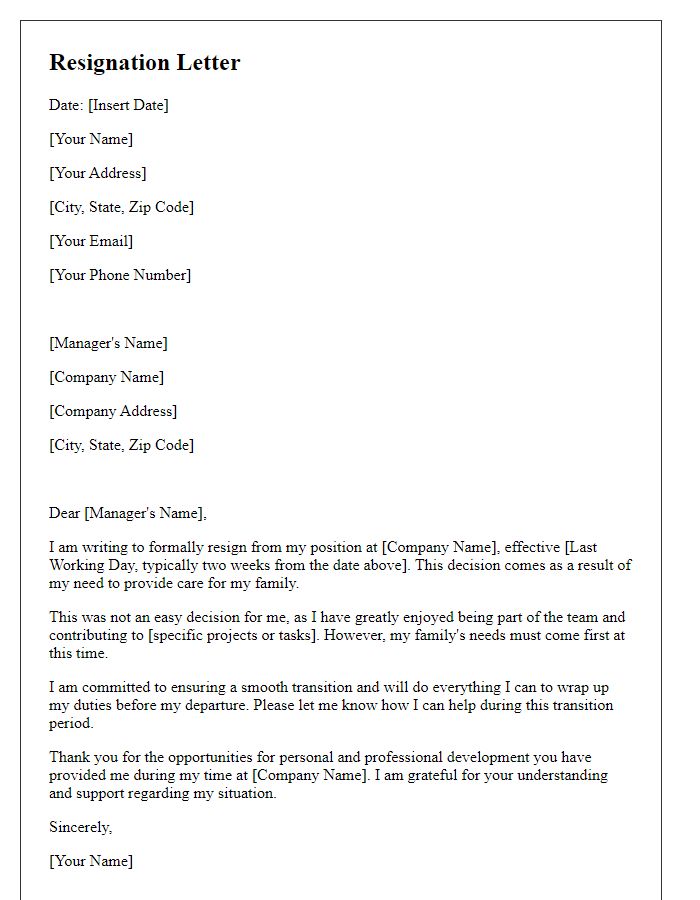


Comments